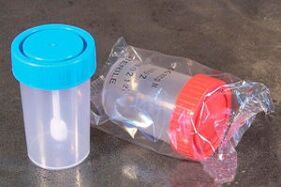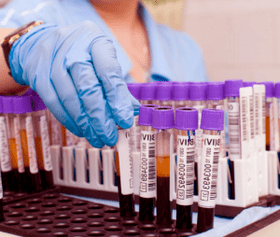
Testing for parasites in adults is a reliable way to detect intestinal infestations and other forms of helminths. Based on the results obtained during the investigation, the specialist prescribes appropriate treatment methods.
Get tested for parasites regularly, not when symptoms indicate the presence of worms. Similar studies are needed for both children and adults.
basic shapes
Kal

The traditional way to detect worms in humans is to test the feces. During the study, specialists examine a fragment of feces to detect the presence of parasite eggs. For the most reliable results, at least 2-4 studies are carried out with an interval of several days.
It allows to identify parasites such as:
- nematodes or roundworms;
- tapeworms (cestodes);
- flukes (flukes).
This parasite analysis, being quite simple, cannot claim the reliability of the results.
To obtain a reliable result, it is desirable to deliver a stool sample to the laboratory within 45 minutes after defecation. If this is not possible, you can store the container with the sample in the refrigerator, but not more than 8 hours.
histological coprogram
The next method used to diagnose worms in adults is a histological coprogram. This study consists of the microscopic analysis of the composition of the feces from the study of its section. Such a procedure will reveal the larvae of the worms, fragments of their bodies, as well as the presence of mature individuals.
The disadvantage of this technique is the impossibility of determining the specific type of parasite that develops in the human body.
Blood

The most effective are studies based on the patient's blood. This test determines the antibodies and antigens contained in the blood for certain types of parasitic organisms. It also provides information on the type of helminth, its reproduction capacity and quantity.
Due to the fact that the helminthic invasion is characterized by the release of toxic waste products of the parasites, the composition of the blood changes. This allows doctors to suspect the presence of worms.
A variation of this study is the enzyme immunoassay.
The sensitivity of this method is quite high (reaches 90%). Even if other studies do not reveal the presence of worms, the enzyme-linked immunosorbent assay provides complete data on the type and prevalence of helminths.
Blood sampling for the study is done on an empty stomach, from a vein.
The blood sample is examined within 2-5 days. The results obtained are deciphered by the treating physician.
The analysis will make it possible to trace the dynamics of the disease caused by the helminthic invasion.
What parasitic diseases does this study detect? That:
- ascariasis;
- fasciolosis;
- amoebiasis;
- toxoplasmosis;
- giardiasis;
- opisthorchiasis;
- cutaneous and visceral leishmaniasis;
- cysticercosis.
You can take parasite tests at various private clinics, whose specialists guarantee quick results.
when to take
Sometimes helminth invasions occur without pronounced symptoms, which greatly complicates both the possibility of diagnosis and timely treatment. However, there are characteristic features, among them:
- persistent headaches;
- frequent colds;
- constipation;
- Sleep disturbance;
- nail brittleness;
- the appearance of cracks on the heels;
- bowel disorder;
- itching in the anus
Parasitic invasions are fraught with serious complications. A large number of worms connected by a ball can cause intestinal obstruction. Among other dangerous consequences are hypovitaminosis, beriberi, anemia, jaundice, chronic cell damage that causes cancer development.






































